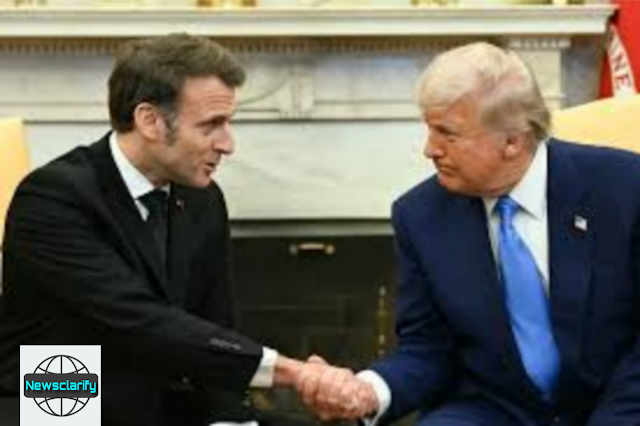Macron Urges EU to Gear Up for Trade Fight After Trump’s 30% Tariff Threat
French President Emmanuel Macron has thrown down the gauntlet, urging the European Union to take a tough stance after Donald Trump threatened to slap a 30% tariff on nearly all goods imported from Europe.
Warning that the EU must be prepared for a potential trade showdown, Macron said it’s time for Brussels to get serious. “It’s now crucial for the European Commission to act decisively to protect European interests,” he posted online. He added that if no agreement is reached by August 1st, the EU must fast-track retaliatory measures, using every legal and diplomatic tool at its disposal — including anti-coercion mechanisms.
While Macron struck a combative tone, other EU leaders called for cooler heads. Governments in Germany, Italy, Ireland, and the Netherlands advocated a calm, calculated response, even as alarm bells rang across European industry.
The Federation of German Industries (BDI) described Trump’s move as a "wake-up call" for businesses on both sides of the Atlantic, underscoring how deeply unsettling the tariff threat has become for Europe’s biggest economy.
In contrast to Macron’s hardline approach, Berlin signaled it wants to avoid open conflict. German Economy Minister Katherina Reiche stressed the importance of quickly finding a “pragmatic solution” through negotiations with the U.S.
Italy’s Prime Minister Giorgia Meloni, who maintains warm ties with Trump, expressed hope that both sides could still strike a “fair deal,” warning that a transatlantic trade war would benefit no one.
Meanwhile, Dutch Prime Minister Dick Schoof emphasized the need for the EU to stay “united and firm” in its pursuit of a mutually advantageous agreement.
Ireland’s Deputy Prime Minister Simon Harris also advised against escalating tensions, though Ireland remains a particular point of friction. Trump has repeatedly accused Dublin of poaching U.S. businesses by offering favorable terms to tech and pharmaceutical giants.
On Sunday, EU ambassadors are scheduled to meet in Brussels to prepare a strategy ahead of a crucial trade minister summit on Monday. Observers expect sharp divisions among member states over how best to respond.
While some insiders view Trump’s 30% tariff proposal as a bluff designed to pressure the EU, many see it as a risky and destabilizing move—especially during a time of global uncertainty.
This isn’t the first time Trump has targeted Europe’s trade practices. In April, he falsely claimed the EU was charging 39% tariffs on U.S. goods—a number widely dismissed by trade analysts, who say the real average is closer to 2.5%.
Several European lawmakers have warned that accepting unjustified tariffs could set a dangerous precedent. Italian MEP Brando Benifei, a member of the international trade committee, said, “The EU must show that it’s not afraid, not stuck, and certainly not willing to play the victim.”
Europe’s auto industry is already under immense pressure, having faced a 25% increase in duties on U.S. exports, with the steel sector suffering under 50% tariffs. Although a tentative deal was on the table to provide relief for EU carmakers like BMW, Volkswagen, Mercedes-Benz, and Volvo, it now appears to be in jeopardy.
Sweden’s finance minister recently criticized that deal, calling it “disastrous,” but admitted some economic fallout was probably unavoidable.
Despite annual EU-U.S. trade reaching a massive €1.4 trillion, only Germany, Italy, and Ireland — thanks to its booming pharmaceutical exports — currently sell more to the U.S. than they buy.
Back in Italy, business leaders are split on how to proceed. Emanuele Orsini, head of Confindustria, the nation’s main industry lobby, urged restraint: “This is a time for composure, not panic.”
But others aren’t as patient. In Veneto, Confindustria’s regional president Raffaele Boscaini insisted that governments step in if tariffs hit. “We need serious support for our industries—investments, credit access, tax relief, and a solid energy strategy,” said Boscaini, who also leads marketing at Masi, a major exporter of Amarone wine—a product that could be heavily impacted by Trump’s proposed tariffs.
As the clock ticks down to August, the EU faces a tough choice: play diplomatic chess with Trump, or lock horns in a full-scale economic battle. Either way, the stakes couldn’t be higher for both sides of the Atlantic.


